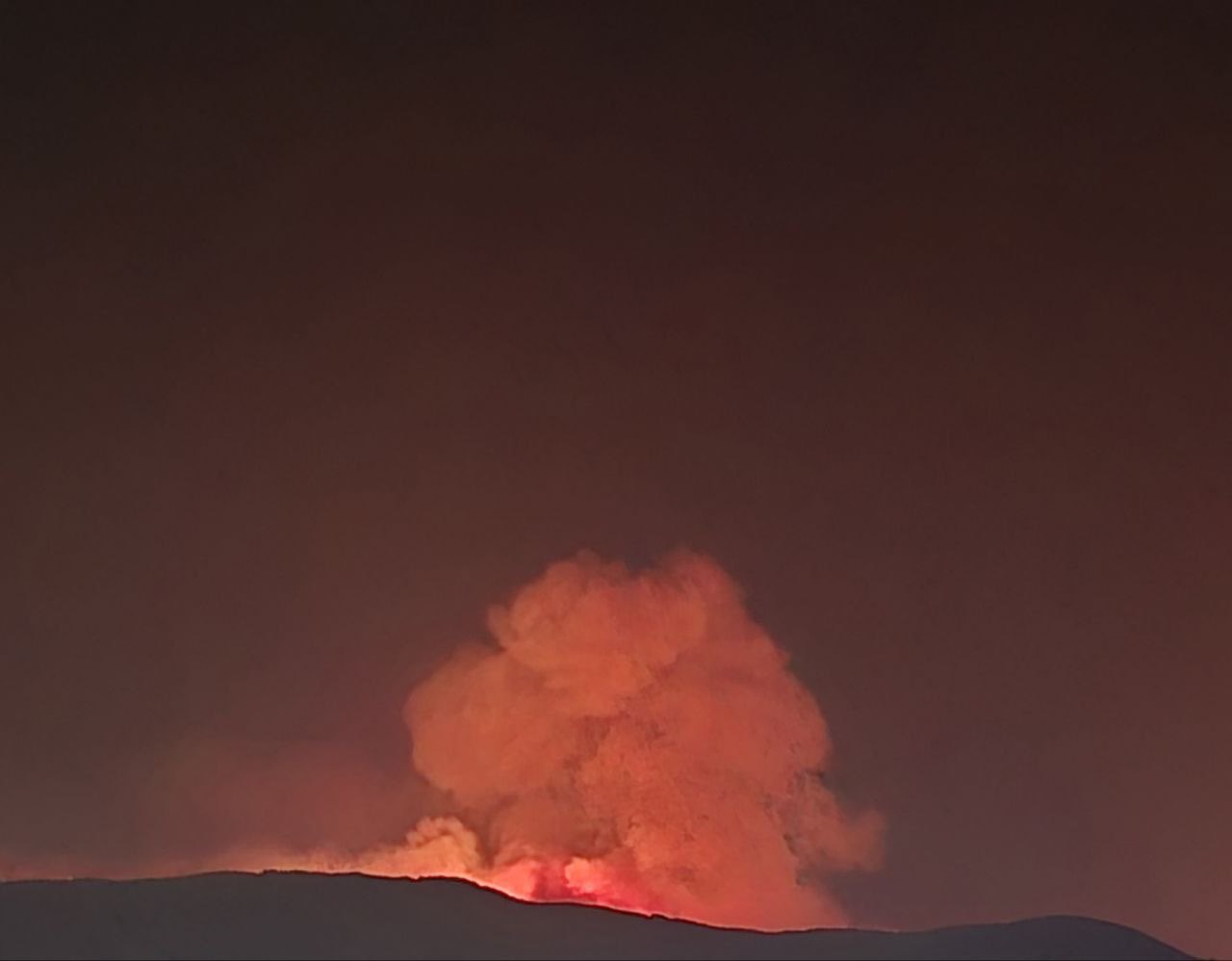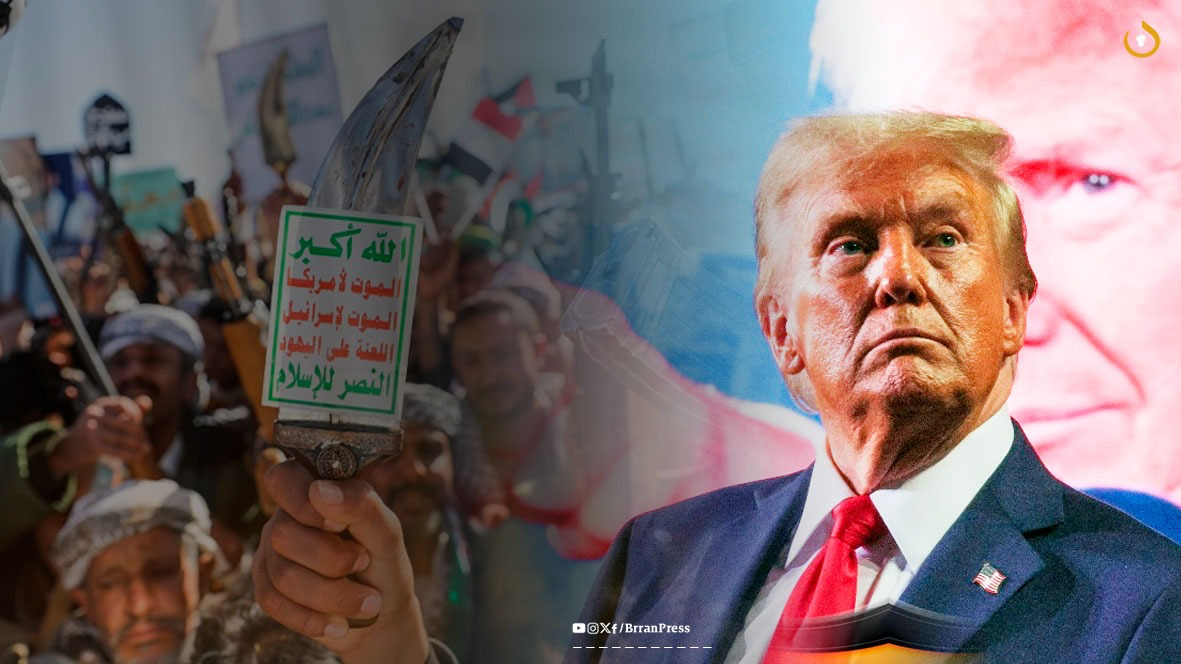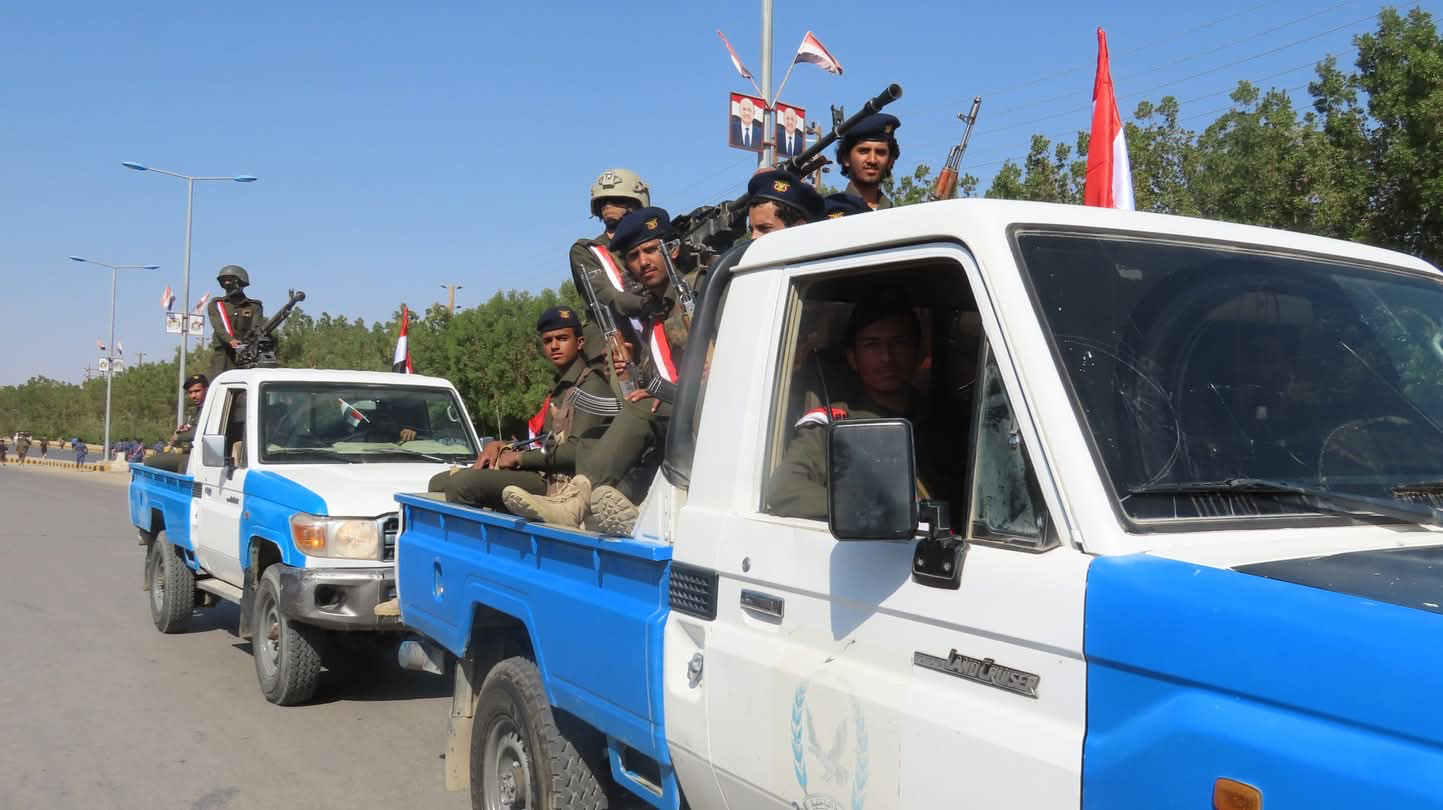
Barran Press | Report by Ammar Zaabal:
Amidst a visit by Yemen's Presidential Leadership Council (PLC) Chairman Rashad al-Alimi to Hadhramaut province (eastern Yemen) - accompanied by PLC members Abdullah al-Alimi Bawazir and Othman Majli - tribal groups in the province have escalated their military presence to prevent oil exports.
On Friday evening, August 2, 2024, tribal armed groups from the Hadhramaut plateau gathered in tribal areas, responding to a previous call by the Hadhramaut Tribal Alliance to block oil exports from the province until the PLC and the government address the demands of the province's people.
Earlier on Thursday, hundreds of citizens gathered in front of the gate of Riyan Airport in Mukalla, demanding a share of the oil reserves in the Al-Dhaba port and the Masila oil field for the province's people, along with improved conditions and lower prices.
Local sources told "Barran Press" that the protesters, who are from the Shakhir area in Mukalla, gathered in front of the Riyan Airport gate since morning, following a 48-hour ultimatum issued by the Hadhramaut Tribal Alliance to the internationally recognized Yemeni government regarding the province's share of the oil reserves in Al-Dhaba port and the Masila oil field.
The sources indicated that fishermen were among the protesters, objecting to being prevented from fishing by Emirati forces stationed at the airport for years, without considering their economic circumstances.
On Wednesday, the Hadhramaut Tribal Alliance issued a 48-hour ultimatum to the legitimate government to fulfill its demands, centered on "genuine and effective partnership" regarding the oil reserves in Al-Dhaba port and the Masila field.
This ultimatum was issued during a meeting of the alliance, where they threatened to seize control of Al-Dhaba port and the Masila oil field as a right belonging to the province, which they would not relinquish, according to a statement from the extraordinary meeting of the alliance's leaders and figures.
Factors of Disruption
Political scientist Dr. Nasser al-Tuwairi attributed these political actions, which have reached the point of military mobilization by the tribes of the oil-rich Hadhramaut province, to the "performance of the local authority, particularly Governor Mabkhout bin Madi."
In a private interview with "Barran Press," Dr. al-Tuwairi stated that Governor bin Madi has not delivered a satisfactory performance in managing the province, noting that this is a major factor that has contributed to the decline in the province's revenues or allocations, as a result of the Houthis later being able to prevent oil exports.
He added, "If the legitimate authority has been significantly affected by the prevention of oil exports, depriving it of significant resources, this applies to Hadhramaut, as it receives approximately 35% of the revenue from oil exports."
The political science professor believes that this has reinforced three factors that have caused unrest in Hadhramaut province. Firstly, the governor's management style, noting that "Governor bin Madi" has disappointed large segments of the province's population, as his performance has been rather modest.
The second factor, according to Dr. al-Tuwairi, is the modest performance of Hadhramaut's administration, accompanied by a high level of corruption. "This has exacerbated public resentment," he said.
He continued, "The third factor is the general situation in the country, meaning the deterioration of people's living conditions and the decline in the value of the currency," noting that these factors combined have contributed to the escalation of unrest in Hadhramaut province.
He pointed to a fourth factor, which is that "the governor does not manage the province through a consensual approach," noting that "he makes decisions unilaterally."
He said, "This is also a sensitive factor in Hadhramaut, where there are influential social and political forces. The lack of consensus or the failure to consider their opinions and govern the province through a consensual approach has contributed to this unrest."
Regarding the reasons for PLC Chairman Rashad al-Alimi's visit to Hadhramaut, Dr. al-Tuwairi believes that it primarily aims to "calm the unrest and empower Governor bin Madi in the province."
Al-Alimi's Visit:
Political analyst Dr. Al-Tawil believes that Al-Alimi's visit is an attempt to "absorb the tensions, unrest, and existing sentiment in the oil-rich governorate, primarily."
According to Dr. Al-Tawil, the visit is also intended to pave the way for the resumption of oil exports as a secondary objective. "Technical reports indicate that the oil tanks are full to capacity, and there is an urgent need to resume exports," he said. "This might push the legitimate government to make concessions."
Regarding oil exports, Dr. Al-Tawil said, "There might be signs on the horizon indicating the possibility of resuming oil exports," but he believes that Al-Alimi's visit is primarily aimed at assisting his right-hand man, Ben Maadi, in managing the governorate.
Dr. Al-Tawil pointed out that the President of the Presidential Council made broad promises during his previous visit last year, but these promises were not followed by practical actions and policies.
In response to the current situation, Dr. Al-Tawil believes that all of Al-Alimi's meetings with political and social components in Hadhramaut will be ineffective. He believes that the main solution lies in changing the governor.
"He should ask the Hadhramaut components to agree on a personality who is acceptable to them, with competence and administrative capabilities, and appoint them to manage the governorate," Dr. Al-Tawil said. "This is the simplest and easiest solution that can create opportunities and open up hope for the people of Hadhramaut in the future."
A Dangerous Precedent
Researcher Dr. Adel Dushaila told "Barran Press" that while the Hadhramaut Tribes Alliance's demands in the past were reasonable and based on rights, the recent shift to a 48-hour ultimatum followed by armed mobilization is a concerning development. He believes it could lead to further security instability and the rise of lawlessness at the expense of the state and its institutions.
Dr. Dushaila warns that the armed gathering could be the beginning of a more dangerous trend, as other oil-producing provinces may follow suit, demanding similar control over their resources. This could ultimately undermine the state and its resources.
Three Possible Scenarios
Dr. Dushaila predicts three potential scenarios for Hadhramaut:
-
Peaceful Resolution: The conflict could be resolved through peaceful means, preserving the province's security and stability, benefiting both the state and its people. This would require intervention from the coalition, particularly Saudi Arabia, to restore order.
-
Escalation and Chaos: The escalation by the tribes could lead to a loss of control in the province, resulting in security instability. This could be exploited by local and regional actors to weaken the remaining Yemeni army forces in Hadhramaut. This scenario is likely if the state lacks a clear strategy to address the situation.
-
Stalemate: The situation could remain unresolved, with armed groups persisting, damaging the province and undermining the legitimacy of state institutions in Hadhramaut.
On July 27th, Yemen's Presidential Leadership Council Chairman Rashad Al-Alimi, along with council members Abdullah Al-Alimi and Othman Majli, began a visit to the oil-rich Hadhramaut province in southeastern Yemen.
This was Al-Alimi's second visit to Hadhramaut since the Presidential Leadership Council assumed power in April 2022. The province faces significant financial and developmental challenges, exacerbated by attacks on oil facilities, export ports, cargo ships, and international shipping routes by the Iranian-backed Houthi militias.
Upon his arrival, Al-Alimi emphasized the council's and the government's understanding of the financial situation in Hadhramaut, acknowledging the local authorities' role in both successes and failures, stressing the need for shared responsibility rather than evasion.





